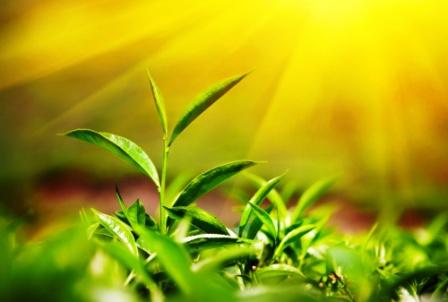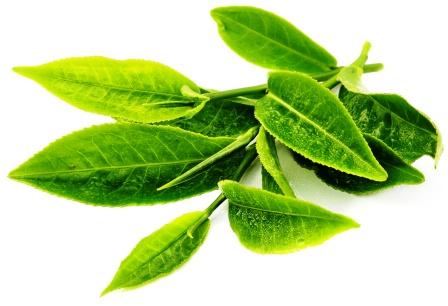Tea Benefits, Remedies For Headache, Vomiting, Eye care
By Dr MS Krishnamurthy MD(Ayu), PhD
Leaves of tea plant are the main usable part. Some use the flowers too. Based upon the kind of processing the Tea is named vividly.
Camellia sinensis is the botanical name of the Tea plant. In fact it is native of South-east Asia. But it is cultivated in tropical and subtropical altitudes 7,000 feet height from sea level. That is the reason now a days we can find it in China, Cambodia, Japan, Tibet etc. In India Foothills of Himalayan ranges, Assam, Karnataka and some parts of Kerala also this is cultivated abundantly.

Initial use of Tea was with the intention of medicinal purpose. The use of tea in traditional Chinese medicine is well documented and it is purported to cure more than 160 diseases. Gradually it became mainstream beverage.
Including Burma, Bangla, Tibet etc in several countries people use pickled tea leaves for longevity and rejuvenation.
In last two decades huge surge is found in the interest in tea’s medicinal properties. It is mainly because the Tea contains the compound theophylline, which is used in a licensed medicine for the treatment for asthma.
Tea leaves are rich in catechins, polyphenols, particularly epigallocatechin gallate- a powerful anti-oxidant that reduces the risk of all malignancy.
The studies have also shown that it has the potent ability to lower the total cholesterol in the human body. Mean while it was found that the leaves will

improve the ratio of good (HDL) cholesterol to bad (LDL) cholesterol.
That makes unique appreciation of fresh green tea worldwide in recent days.
The tea leaves possess less caffeine than coffee. Also, it revives the body particularly the central nervous system, heart and liver.
In addition, tea is effective in lowering the blood sugar levels too. The unikque nature on reducing the inflammation in the gut made the scientists to advice tea in the conditions like Crohn’s disease, Sprue syndrome, Malabsorption syndreome, Ulcerative colitis, Inflammatory Bowel Disease etc.
Table of Contents
Home remedies
Apart from its use as a stimulant drink of any time starting from rising bed time to lying bed time, it is used as in the preparation of several home remedies and few of the important ones are discussed here below-
For headache, bad breath
1. Tea infusion for headache and bad breath:
One teaspoon of tea powder is added to a cup of warm water and kept for a while. Later, half spoon of lemon juice is added mixed thoroughly. If necessary little sugar can be added. This relieves headache and foul smell of the mouth.
Read related: Ayurvedic Remedies, Treatment, Medicines For Halitosis (Bad Breath)
For wound washing
2. Tea decoction in wound washing:
A tablespoon of tea powder is mixed with 4 cups of water, boiled and reduced to 2 cups. Filtered. This tea decoction is used for washing wounds and ulcers. In case of mouth ulcers and gingivitis also this can be used to rinse the mouth.
Read related: Mouth Ulcers: Ayurvedic Treatment, Medicines, Remedies, Tips
For vomiting, nausea
3. Tea powder remedy for bilious vomiting and nausea:
1 teaspoon of tea powder with 5 pieces of lemon grass are added to a cup of hot water and kept for a while. Later half a cup of cocum juice is added to this and mixed well. According to one’s liking sugar or jaggery may be added to this. This has good effect in nausea, vomiting, travelling sickness etc. Dose is half a cup 2 – 3 times a day, freshly made, before food.
For mouth ulcers
4. Fresh green tea leaf chewing in mouth ulcer:
Chewing the tender leaves of tea helps to relieve the pain associated mouth ulcer instantly.
To soothe eyes
5. Fresh leaf paste to soothe eyes:
Fresh tender leaves of tea are collected and made into fine paste. If necessary little rose water may be added. This is applied over the closed eyes, externally. It gives soothing effect to the eyes. This helps to relieve the fatigue and work exhaustion of the eyes.
Note: The application should be removed before it dries up.
Read related: Triphala Home Remedy For Eye Care
For cough, cold
6. Green Tea for travel sickness and cold and cough:
Sugarless green tea is made and to this a pinch of ginger powder and 3-4 fresh leaves of holy basil are added and kept for 2-3 minutes. Later quarter tablespoon of lemon juice is added and stirred and filtered. This is useful to relieve allergic cough, cold, sore throat, travelling sickness etc. In case of excess phlegm, half spoon of honey can also be added.
Hereafter drink tea not merely as a stimulant; learn the health benefits and use it accordingly as a home remedy too.
Click to consult Dr MS Krishnamurthy MD (Ayu), PhD










4 comments on “Tea Benefits, Remedies For Headache, Vomiting, Eye care”
v.r.k.raman
v.r.k.raman. Are these benefits and remedies applicable to green tea only or
to black tea also(which is more widely used in india)?
Dr J V Hebbar MD(Ayu)
They are applicable to both green and black teas.
Swine
addition of Milk, will it destroy the benefits?
Taruna
Dr. Hebbar, I grew up drinking milk + bournvita, Never drank tea . Now, only sparingly, i try to drink tea socially, and it makes me feel dehydrated, anxious, and fearful.. my entire rest of the day goes feeling jittery and depending on what time i drank it, I most probably wont have a good nights sleep: When otherwise, I always sleep well. So, your description of the good properties of tea are confusing to me.. Please explain